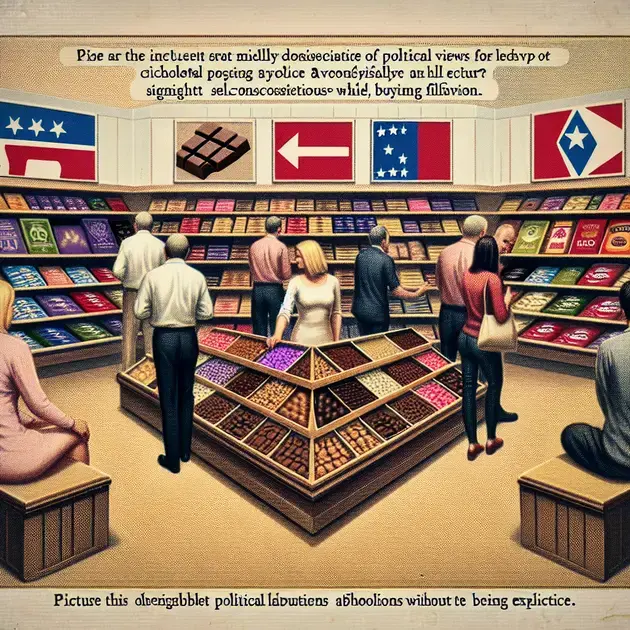Title: The Politics of Chocolate: The Influence of Personal Beliefs on Consumer Choices
Introduction:
In today’s highly polarized society, even seemingly mundane products can become subject to political scrutiny. Recent research from Sweden suggests that our preference for certain products, like chocolate, can be influenced by the political views of others. This behavior is amplified when we make decisions in the presence of an audience. In this article, we delve into the findings of this study and explore the political dynamics that can permeate our consumption choices.
The Influence of Political Affiliation:
The study conducted in Sweden revealed that individuals tend to distance themselves from products perceived as completely neutral if they discover that these products are favored by individuals whose political views they disagree with. This phenomenon highlights how our personal beliefs can influence our consumer behavior, even in the case of something as universally liked as chocolate.
Reinforcement through Social Influence:
The research further emphasized that the influence of political affiliation on consumer choices is exacerbated when decisions are made in a public setting, where others are watching. It suggests that individuals are more likely to align their preferences with their political group and distance themselves from products endorsed by rival political factions. This finding underscores the power of social influence and our innate desire for group affiliation.
The Implications for Consumer Behavior:
Understanding the politicization of seemingly neutral products like chocolate is crucial in comprehending the complexities of modern consumer behavior. It raises questions about the role of personal beliefs and group dynamics in shaping our choices. The findings of this study are particularly relevant in an era where political polarization is growing, and partisan divisions infiltrate different aspects of our lives.
The Potential Solutions:
Recognizing the influence of personal beliefs on consumer behavior presents an opportunity for marketers and businesses to adapt their strategies accordingly. Promoting inclusivity, diversity, and neutrality in their product messaging can help mitigate any potential negative biases associated with certain political affiliations. Additionally, creating spaces that foster open dialogue and tolerance can encourage consumers to make decisions based on personal preferences rather than political bias.
Conclusion:
The research from Sweden highlights the remarkable influence of political affiliations on consumer choices, even when it comes to universally enjoyed products such as chocolate. This study sheds light on the complexities of modern consumer behavior and emphasizes the role of personal beliefs and social influences in shaping our preferences. By acknowledging these dynamics, businesses can strive to create an environment that promotes inclusivity and fosters consumer choices based on personal preferences rather than political bias.
